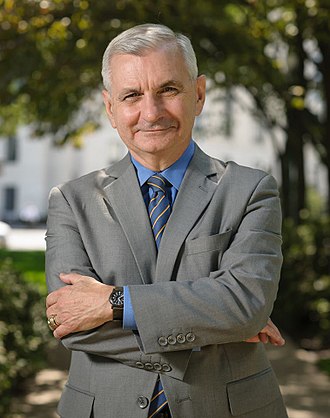Reed Scores Key Victory in ‘CHIPS-Plus’ Bill to Turbocharge RI’s Innovation & Scientific Research Ecosystem

Sen. Reed leads efforts to boost share of EPSCOR research and development dollars to spur more technological advancements and job creation in the Ocean State
WASHINGTON, DC — In an effort to strengthen the U.S. economy and national security while bringing jobs back to the U.S. and bolstering supply chains, the U.S. Senate is poised to pass a version of the Creating Helpful Incentives for the Production of Semiconductors (CHIPS) for America Act, known as ‘CHIPS-Plus.’ This legislation will boost U.S. computer chip manufacturing and reduce U.S. reliance on foreign-made semiconductors. The bill also makes significant investments in scientific research and development initiatives and will boost Rhode Island’s innovation and scientific research ecosystem thanks to language added by U.S. Senator Jack Reed (D-RI).
In 1990, the U.S. produced 37 percent of the world’s semiconductors. Today, just 12 percent of semiconductors are manufactured in the United States. And a global shortage of computer chips in the wake of COVID-19 has continued to ripple through several key sectors of the U.S. economy, including automakers, mobile phone and consumer technology companies, and defense manufacturers.
To encourage homegrown computer chip manufacturing in the U.S., create good-paying America jobs, and address supply chain vulnerabilities in these critical technologies, the CHIPS-Plus package allocates $52 billion for semiconductor research, design, and manufacturing. It authorizes federal workforce development funds to train more American workers in the in-demand skills needed to build semiconductor chips. And it includes language that would prevent companies that receive a share of the $52 billion in funding from using that money on stock buybacks or paying stock dividends to shareholders.
“This bill makes strategic investments that will create jobs, rebuild domestic chip production, and do right by American workers and consumers. It also offers targeted tax breaks to construct semiconductor manufacturing facilities here in the U.S. and will help American companies compete in the global marketplace. Bringing these jobs home to America, proactively insulating the U.S. from future chip shortages or disruptions, and strengthening America’s capacity to produce cutting-edge computer chips and advanced technologies is a win for our economy and national security and will lead to stronger, more resilient supply chains,” said Senator Reed.
The bill also includes nearly $100 billion in authorizations over five years – subject to appropriations — for programs to bolster the National Science Foundation’s work, establish regional technology hubs under the U.S. Department of Commerce, and focus on translating research breakthroughs into real-world commercial applications and products.
To help bring new, high-tech, science-related jobs to Rhode Island, Senator Reed led efforts to include language in the CHIPS Plus package to bolster the Established Program to Stimulate Competitive Research (EPSCoR). EPSCoR is a critical research and development program that’s designed to help states traditionally underfunded by the National Science Foundation (NSF) compete for research dollars by providing money to improve infrastructure and capacity.
“This bill will bring more federal R&D funding home to Rhode Island, strengthen our world-class research ecosystem, and fund cutting-edge, breakthrough research that leads to new discoveries and products. Without this language, it’s possible our state would lose out on millions of dollars,” said Senator Reed.
Specifically, the Reed-backed language in the bill will quadruple the amount of funding authorized for Department of Energy (DOE) EPSCoR over 5 years, while also increasing by fivefold the percent of the DOE research budget that goes to EPSCoR. The bill will also boost EPSCoR funding up from 12.5 percent to 20 percent of the NSF research budget over seven years. And it would also require at least 20 percent of NSF scholarship funding goes to EPSCoR institutions by 2025. These provisions are estimated to bring an additional $1.8 billion in competitive funding to EPSCoR states over that period.
The University of Rhode Island and Brown University are expected to receive the bulk of EPSCoR research dollars in Rhode Island and the universities work collaboratively with businesses and other researchers on a variety of programs, including marine, energy, and coastal research projects. Since EPSCoR launched in 2004, $88 million has been directed to Rhode Island for cutting-edge collaborative research projects.
The U.S. Senate is slated to vote Monday evening on a cloture motion to limit debate on the measure (H.R. 4346), teeing up a vote on final passage later this week. It must also be passed by the U.S. House of Representatives before it can be sent to President Biden’s desk to be signed into law.